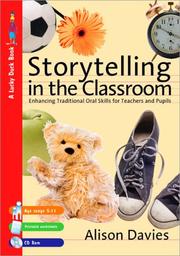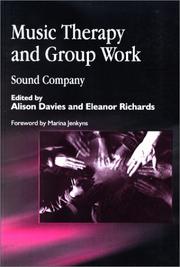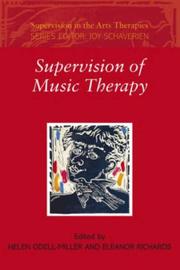| Listing 1 - 9 of 9 |
Sort by
|

ISBN: 1282560069 9786612560064 1848605226 9781848605220 1412920256 9781412920254 9781282560062 6612560061 Year: 2007 Publisher: London : Thousand Oaks : Paul Chapman Pub. ; SAGE Pub. Inc.,
Abstract | Keywords | Export | Availability | Bookmark
 Loading...
Loading...Choose an application
- Reference Manager
- EndNote
- RefWorks (Direct export to RefWorks)
`Too afraid to have a go at oral storytelling in the classroom? This is the book for you!...The book guides you through choosing a tale you really enjoy, knowing your audience and not being afraid to adapt a tried and tested fairy tale' - Literacy Time `This book is ideal for all adults working with children (mainly at primary level) and would be especially useful for those less confident or who are new to their role. It provides a great opportunity to practise an inspirational and creative approach to teaching and learning...I really enjoyed this book and took away
Storytelling. --- Oral interpretation. --- Interpretative reading --- Interpretative speech --- Reading, Interpretative --- Speech, Interpretative --- Oral communication --- Oral reading --- Reading --- Intonation (Phonetics) --- Story-telling --- Telling of stories --- Oral interpretation --- Children's stories --- Folklore --- Oral interpretation of fiction --- Performance
Book
ISBN: 1787136701 9781787136700 1787136086 9781787136083 Year: 2020 Publisher: [Place of publication not identified] QUADRILLE Publishing LTD
Abstract | Keywords | Export | Availability | Bookmark
 Loading...
Loading...Choose an application
- Reference Manager
- EndNote
- RefWorks (Direct export to RefWorks)
Connect with nature and harness the power of the seasons all year round.
Holidays. --- Witchcraft.

ISBN: 9781843100362 1417501677 9781417501670 1846423414 9781846423413 1843100363 1843100363 128390392X Year: 2005 Publisher: London Jessica Kingsley Publishers
Abstract | Keywords | Export | Availability | Bookmark
 Loading...
Loading...Choose an application
- Reference Manager
- EndNote
- RefWorks (Direct export to RefWorks)
Group music therapy has been widely practised for many years, and features substantially in training, yet there has been no publication devoted to the discussion of this area of therapy. This book fills this gap by bringing together the experiences of group music therapy practitioners who work with diverse client groups in various settings.
Muziektherapie --- Creatieve therapie --- Group psychotherapy --- Music therapy --- Psychoanalysis and music --- 681 --- Collective psychotherapy --- Group therapy --- Psychotherapy --- Music and psychoanalysis --- Music --- Musical therapy --- Musicotherapy --- Therapeutics --- Psychotherapy and music --- Naslagwerken muziektherapie --- Therapeutic use --- Group psychotherapy. --- Music therapy. --- Psychoanalysis and music.
Book
ISBN: 3319760262 3319760254 Year: 2018 Publisher: Cham : Springer International Publishing : Imprint: Palgrave Macmillan,
Abstract | Keywords | Export | Availability | Bookmark
 Loading...
Loading...Choose an application
- Reference Manager
- EndNote
- RefWorks (Direct export to RefWorks)
This book explores the discourse of attention deficit hyperactivity disorder (ADHD), one of the most debated mental health categories attributed to children and adults across the globe. The authors trace the origins, development and representation of ADHD to demonstrate how the category is produced through competing explanatory theories and processes of scientific, professional and lay discourse. Starting with the idea that medical categories are as much a product of cultural meaning, social processes and models of medicine as they are of scientific fact, this book utilises a range of perspectives from within critical discursive psychology to approach this topic. The authors discuss historical construction, media representation, parents’ accounts of family life, and the personal experience of children and adults to demonstrate how the construction of social identity and cultural stereotypes are embedded in the meaning of ADHD. They explore the origins of ADHD and how biological and psychosocial explanations of the mental health category have been produced, circulated, debated and resisted within a culture of ‘Othering’, and the discourse of blame. .
Psychology. --- Discourse analysis. --- Sociology. --- Clinical psychology. --- Personality. --- Social psychology. --- Sex (Psychology). --- Gender expression. --- Gender identity. --- Clinical Psychology. --- Discourse Analysis. --- Disability Studies. --- Personality and Social Psychology. --- Gender Studies. --- Attention-deficit hyperactivity disorder. --- ADD (Child behavior disorder) --- ADHD (Child behavior disorder) --- Attention deficit disorder with hyperactivity --- Attention deficit disorders --- Hyperactive child syndrome --- Hyperkinesia in children --- Hyperkinetic syndrome --- Behavior disorders in children --- Minimal brain dysfunction in children --- Psychology, clinical. --- People with disabilities. --- Consciousness. --- Developmental psychology. --- Development (Psychology) --- Developmental psychobiology --- Psychology --- Life cycle, Human --- Apperception --- Mind and body --- Perception --- Philosophy --- Spirit --- Self --- Cripples --- Disabled --- Disabled people --- Disabled persons --- Handicapped --- Handicapped people --- Individuals with disabilities --- People with physical disabilities --- Persons with disabilities --- Physically challenged people --- Physically disabled people --- Physically handicapped --- Persons --- Disabilities --- Sociology of disability --- Discourse grammar --- Text grammar --- Semantics --- Semiotics --- Expression, Gender --- Sex (Psychology) --- Sex role --- Psychology, Sexual --- Sex --- Sexual behavior, Psychology of --- Sexual psychology --- Sensuality --- Mass psychology --- Psychology, Social --- Human ecology --- Social groups --- Sociology --- Personal identity --- Personality psychology --- Personality theory --- Personality traits --- Personology --- Traits, Personality --- Individuality --- Temperament --- Psychiatry --- Psychology, Applied --- Psychological tests --- Psychological aspects --- Linguistics—Methodology. --- Social medicine. --- Difference (Psychology). --- Sex. --- Research Methods in Language and Linguistics. --- Health, Medicine and Society. --- Personality and Differential Psychology. --- Gender (Sex) --- Human beings --- Human sexuality --- Sex (Gender) --- Sexual behavior --- Sexual practices --- Sexuality --- Sexology --- Differential psychology --- Psychology, Differential --- Differentiation (Developmental psychology) --- Medical care --- Medical sociology --- Medicine --- Medicine, Social --- Public health --- Public welfare --- Medical ethics --- Medical sociologists --- Social aspects
Book
ISBN: 9780905944227 0905944224 Year: 1993 Publisher: Reading (Berkshire): British grassland society,
Abstract | Keywords | Export | Availability | Bookmark
 Loading...
Loading...Choose an application
- Reference Manager
- EndNote
- RefWorks (Direct export to RefWorks)
Digital
ISBN: 9783319760261 Year: 2018 Publisher: Cham Springer International Publishing :Imprint: Palgrave Macmillan
Abstract | Keywords | Export | Availability | Bookmark
 Loading...
Loading...Choose an application
- Reference Manager
- EndNote
- RefWorks (Direct export to RefWorks)
This book explores the discourse of attention deficit hyperactivity disorder (ADHD), one of the most debated mental health categories attributed to children and adults across the globe. The authors trace the origins, development and representation of ADHD to demonstrate how the category is produced through competing explanatory theories and processes of scientific, professional and lay discourse. Starting with the idea that medical categories are as much a product of cultural meaning, social processes and models of medicine as they are of scientific fact, this book utilises a range of perspectives from within critical discursive psychology to approach this topic. The authors discuss historical construction, media representation, parents’ accounts of family life, and the personal experience of children and adults to demonstrate how the construction of social identity and cultural stereotypes are embedded in the meaning of ADHD. They explore the origins of ADHD and how biological and psychosocial explanations of the mental health category have been produced, circulated, debated and resisted within a culture of ‘Othering’, and the discourse of blame. .
Developmental psychology --- Cognitive psychology --- Social psychology --- Sociology of the family. Sociology of sexuality --- Social policy and particular groups --- Psychiatry --- Pragmatics --- medische psychologie --- personen met een beperking --- tekstanalyse --- ontwikkelingspsychologie --- bewustzijn --- ADHD (attention deficit hyperactivity disorder) --- klinische psychologie --- gender --- persoonlijkheidsleer --- kinderen met een beperking
Book
ISBN: 9780905944043 0905944046 Year: 1981 Publisher: Maidenhead: British grassland society,
Abstract | Keywords | Export | Availability | Bookmark
 Loading...
Loading...Choose an application
- Reference Manager
- EndNote
- RefWorks (Direct export to RefWorks)
Book
ISBN: 9780415665940 Year: 2015 Publisher: London Routledge
Abstract | Keywords | Export | Availability | Bookmark
 Loading...
Loading...Choose an application
- Reference Manager
- EndNote
- RefWorks (Direct export to RefWorks)


ISBN: 9780415411264 Year: 2009 Publisher: New York Routledge
Abstract | Keywords | Export | Availability | Bookmark
 Loading...
Loading...Choose an application
- Reference Manager
- EndNote
- RefWorks (Direct export to RefWorks)
| Listing 1 - 9 of 9 |
Sort by
|

 Search
Search Feedback
Feedback About UniCat
About UniCat  Help
Help News
News